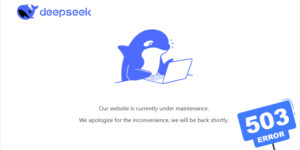
The Tech Giant, Google, has started testing Federated Learning of Cohorts (FLoC) as an alternative for cookies. The company on Tuesday said that it is rolling out FLoC, its replacement for third-party cookies, as a developer origin trial in Chrome.
What is FLoC?
Federated Learning of Cohorts, otherwise known as FLoC, provides a privacy-preserving mechanism for interest-based ad selection. FLoC collects data based on the behavior of groups called cohorts, enabling advertisers to show relevant ads without identifying an individual personally. The browser recalculates its Cohort at regular intervals on the user’s device without sharing the browsing data with the browser vendor or anyone else.
Marketers include code on their websites to gather and provide cohort data to their ad tech platforms (companies providing software and tools to deliver advertising). The ad platform uses this data to select relevant ads when a browser from one of the cohorts requests a page from a site that displays ads.
As the browsing history of a user changes, Cohort also changes. Users looking for individual experience can sign into websites and share their personal information if they want.

Google explained it via a blog post. The post read: “With FLoC, your browser determines which Cohort corresponds most closely to your recent web browsing history, grouping you with thousands of other people who have similar browsing histories. Everyone in the ads ecosystem, including Google’s own advertising products, will have the same access to FLoC.”
Furthermore, Google said, “Chrome analyses whether the Cohort is visiting pages with sensitive topics at a high rate. If so, Chrome would ensure the Cohort is not used, without learning which sensitive topics users are interested in.”
The marketers would be able to create and deploy their own audiences without using third-party cookies. They are even expected to see at least 95% of the conversions per dollar spent compared to cookie-based advertising.
The tech giant will start the initial testing in Australia, Brazil, Canada, India, Indonesia, Japan, Mexico, New Zealand, the Philippines, and the US. The company plans to introduce a control in Chrome Settings in April 2021 to allow its users to opt-out of inclusion in FLoC and other Privacy Sandbox proposals.
Apart from this, the company is also planning to launch a new site, namely privacysandbox.com, for updates on privacy sandbox, FAQs on FLoC, and links to other resources. FLoC is under development and will evolve based on the inputs and learnings from the trial.
Related: How to use Google Maps Offline






